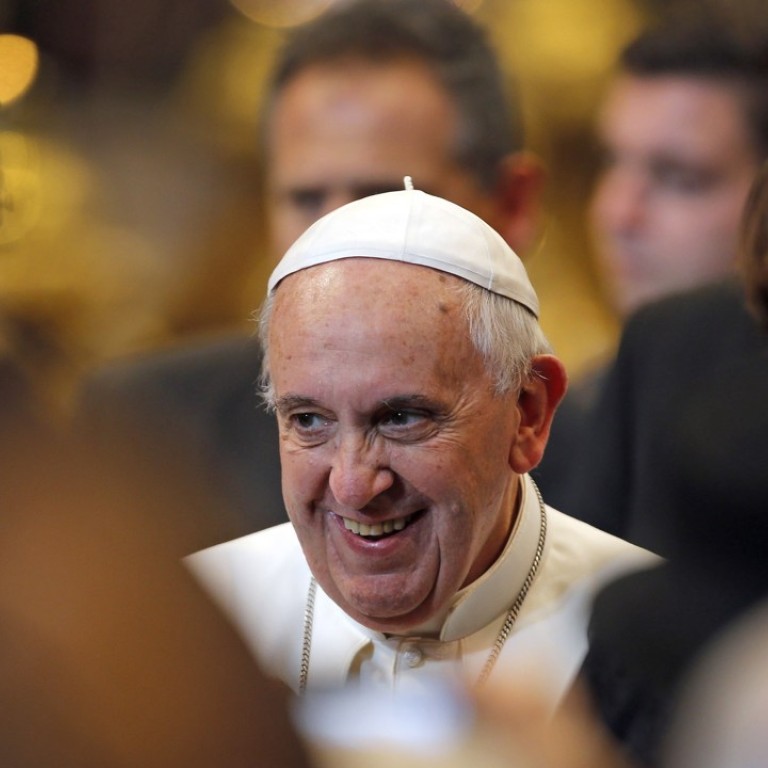
Book review: Pope Francis’ first book as pontiff shows he’s a natural storyteller
is a thought-provoking 150 pages in a question and answer format that balances deep theological insights with apposite anecdotes
by Pope Francis
Random House

Pope Francis has gained fame and admiration for his common touch. Eschewing much of the pomp of previous popes, such as the traditional shiny red shoes, Francis wears the same type of simple black clerical shoes he did as archbishop in Buenos Aires – and keeps his commentary down to earth, too.
His first book as pope, The Name of God is Mercy, follows that same trajectory. While the sharp-witted and erudite Francis, the first Jesuit pope, can philosophise and theologise with the best of them, he speaks and writes in a way the man and woman in the street can understand.
He is a natural storyteller, and this 150-page book – in a question and answer format – is full of anecdotes from his life. He speaks of encounters ministering to prostitutes, prisoners and slum dwellers, while throwing in references to a niece, his grandmother, even a novel.
SEE ALSO: Combat ‘torrent’ of misery in the world, pope urges in New Year message
The book, the result of an interview with veteran Vatican reporter Andrea Tornielli, is a thought-provoking read that balances deep theological insights with memorable stories.
Francis’ central theme: Mercy, which he calls “God’s identity card”, is at the core of the Christian message. “Without mercy, without God’s forgiveness, the world would not exist; it couldn’t exist,” Francis says.
The pope tells the story of when he was working as a parish priest in Argentina and met a mother with young children whose husband had left her. With little work available, she turned to prostitution to put food on the table.
One day the woman returned to the parish to thank Francis – then named Jorge Bergoglio – not just for the food the parish provided but for respecting her by always calling her “senora”. “Experiences like this teach you how important it is to welcome people delicately and not wound their dignity,” Francis says.

He takes on what he calls “scholars of the law” – people who get so caught up in rigidly enforcing church doctrine that they fail to show Christian compassion and love. “I will say that there is often a kind of hypocrisy in them, a formal adherence to the law that hides very deep wounds ... These are men who live attached to the letter of the law but who neglect love; men who only know how to close doors and draw boundaries.”
He even offers priests advice on how not to turn confessional booths into “torture chambers”: mainly, be good listeners and don’t harshly condemn.
For those who may struggle to remain focused during Sunday mass when a homily edges towards the esoteric – and even for non-Christians – Francis’ words will prove to be a welcome antidote of blunt, self-revealing and “real world” wisdom.
He readily acknowledges his own moral frailness and there-but-for-the-grace-of-God-go-I attitude. When he visits a prison, as he did in Philadelphia last autumn, he feels he could easily be on the other side of the bars.
“I have a very special relationship with people in prisons, deprived of their freedom,” Francis says. “I have always been very attached to them, precisely because of my awareness of being a sinner. Every time I go through the gates into a prison to celebrate mass or for a visit, I always think: why them and not me? I should be here. I deserve to be here. Their fall could have been mine.”
Tribune News Service

